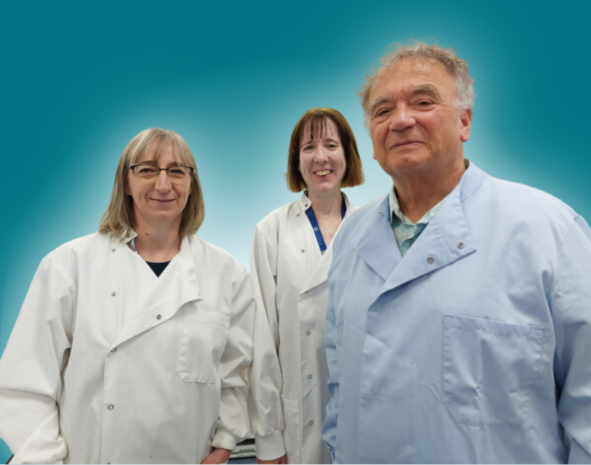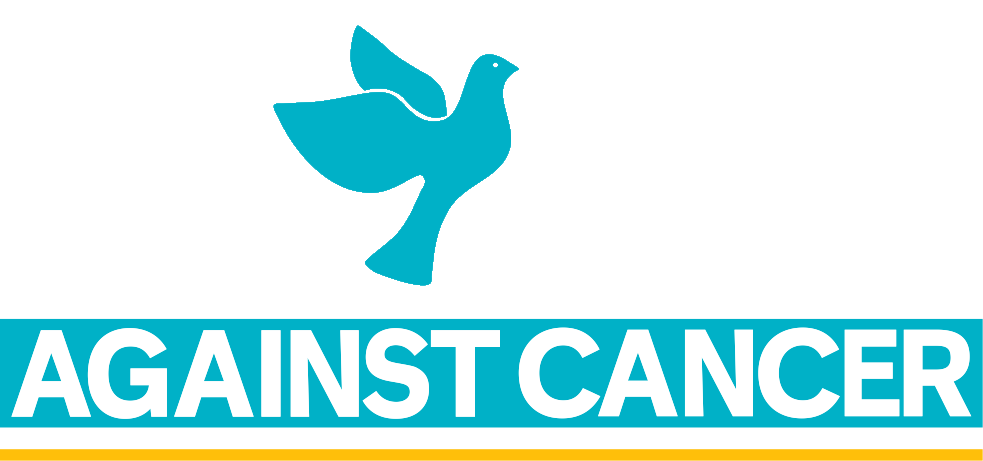DISCOVERING Hope Against Cancer
Impacting the World of Cancer Research
- from Right Here in Leicester
- Hope Against Cancer has funded over 100 research projects in the form of fellowships, PhD studentships, and consumable grants.
- The projects have covered a range of cancers at different stages of research – all with the aim of improving the lives of cancer patients.
- By helping fund cutting-edge research in the area, Hope Against Cancer has played a role in Leicester becoming internationally recognised for its cancer expertise.
- This has only been made possible by the massive support and generous donations from members of the public and local businesses and organisations.
Meet Some of Our Researchers & Projects
Hope Against Cancer is proud to have helped the Universities and Hospitals of our area develop and promote a stream of experts and specialists in various areas of cancer research.
These people are leading the fight against cancer, and we thought you'd like to put a few names and faces to a selection of the important projects that Hope has funded.

Professor Chris Talbot
Professor Talbot has led an investigation into how acute ‘on treatment’ radiotherapy toxicities may result in late effects, which can have a significant impact on health-related quality of life.
Prof Talbot has subsequently secured a multi-million-pound Horizon grant with European collaborators that will look at new ways of predicting risk of radiotherapy side effects in breast cancer patients using artificial intelligence.

Dr. Esther Moss
Dr Moss’s funding into endometrial cancer is helping to improve understanding of how ethnicity may be important in understanding drivers of cancer and how best to treat endometrial cancer.


Professor Catrin Pritchard, Professor Dean Fennell
Funding received by Prof Pritchard and Prof Fennell is helping to improve our understanding of a type of lung cancer caused by exposure to asbestos called mesothelioma. The research is improving our understanding of the use of immunotherapy treatments, and will inform us of new areas of research for patients with this type of cancer.

Doctor Gareth Miles
Funding received by Dr Miles is allowing him to develop better ways to predict treatment responses to chemotherapy and other new drugs in breast cancer so that in the future we can make smarter treatment choices for our patients.

(Left to Right)
Dr. Sandrine Jayne, Dr. Harriet Walter, Professor Martin Dyer
Funding received by Dr Jayne and Prof Dyer has helped develop a new pre-clinical model in lymphoma and resulted in subsequent funding from industry (£>400,000). The purchase of a new microplate reader has improved understanding of which drugs may help patients and, in some cases, inform personalised therapy of patients in the clinic.
Funding received by Prof Dyer and Dr Walter has led to new tools for early detection of relapse in Mantle cell lymphoma being studied in Leicester and led to Leicester’s involvement as only one of 4 UK sites in an important study in lymphoma using liquid biopsies.
Stages & Types of Our Research to Date
Initial research in the lab to understand cancer in the cell
New ideas for cancer treatments are developed from the lab, where experiments are done to understand the molecular events that make a cancer cell.
Testing drug candidates in the lab for effectiveness
Sometimes, a potential drug candidate is identified but whether or not it might have an effect on cancer cells is not known, and more experiments in the lab are done.
Clinical trials – studying the effects of a treatment on humans
Once data from the lab is collected, clinical trials can be done. It is done to test safety, dosage and the effectiveness of a drug with human volunteers.
Improving methods of diagnosis and treatment
Constantly working to improve methods of diagnosis and predicting how well treatments might work for an individual is a vital area of research work.
Improving the consultation experience
Hope funding has also been awarded to projects that improve the cancer journey at the doctor and patient interaction level. Social inequalities may have an impact on an individual’s treatment process, and a study looking at this in lesbian, gay, bisexual and transexual people has also been funded.
Detail on Selected Individual Projects





